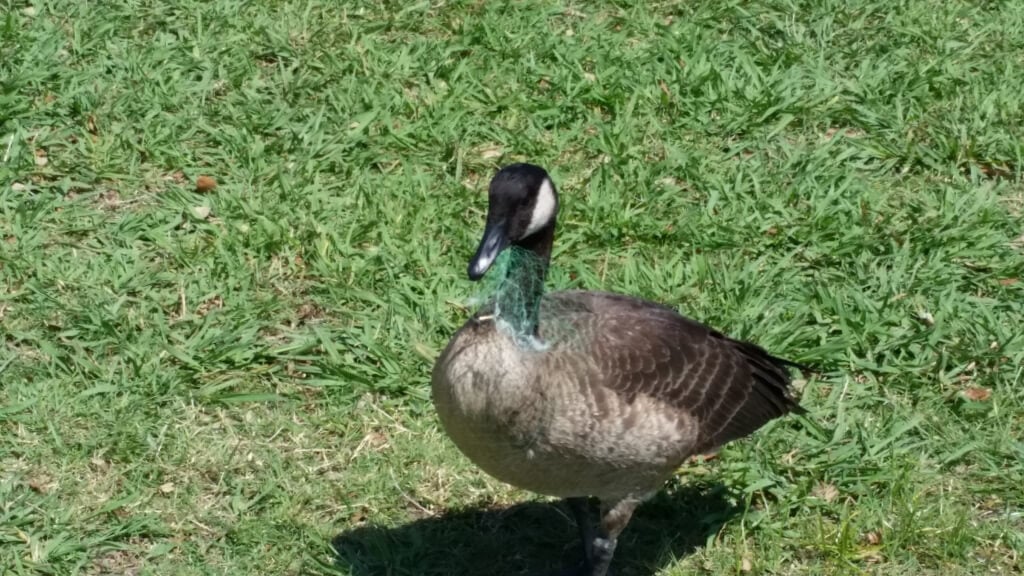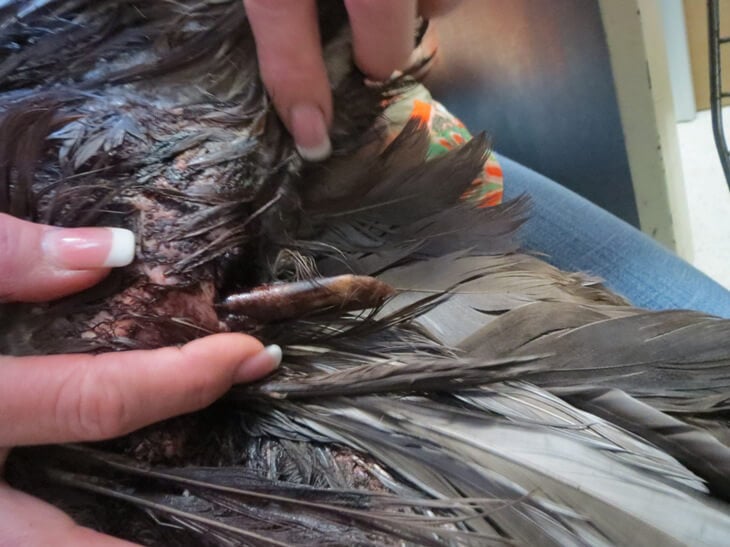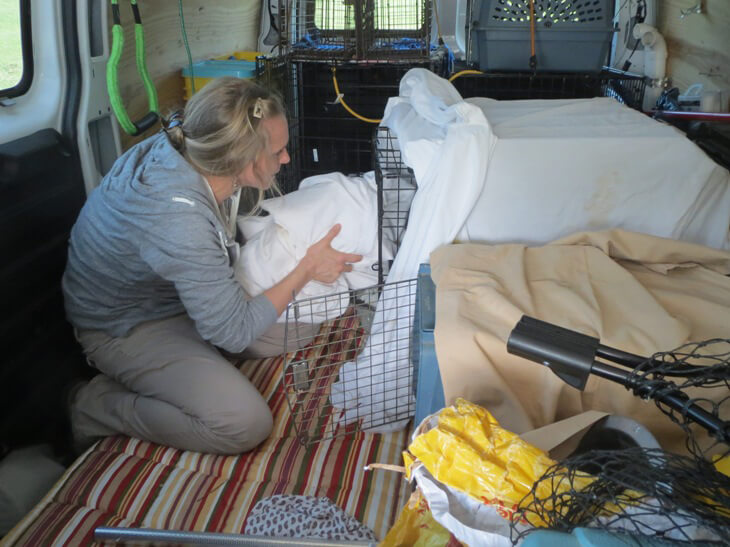Are You Killing Geese With ‘Kindness’?
A kind, elderly man recently called PETA’s Community Animal Project (CAP) for help after he found an injured Canada goose on the side of the road. The goose was unable to bear weight on one of his legs, and the well-meaning (but misguided) man wanted to try to “rehabilitate” the bird himself. Good thing he called us! Canada geese, like most birds, are federally protected under the Migratory Bird Treaty Act, and it’s illegal to try to care for injured wildlife yourself. We persuaded the man to let us take the goose to a licensed wildlife rehabilitator, and the goose is now receiving treatment for an infected wound.


Despite their imposing size, geese are very vulnerable and fragile animals. Picking up litter—especially carelessly discarded fishing line—from rivers and lakes where geese swim will prevent them from ingesting or becoming entangled in trash. It’s also important to cut apart six-pack rings (including the inner diamonds), rinse out your recyclables, and rinse out and flatten cans. Slowing down and watching out for geese and their goslings while driving near waterways will also save lives, as will asking officials to ban fishing in areas where water birds frequent.
And please, don’t feed geese. Geese who are artificially fed can quickly develop “angel wing,” a condition in which their wing joints become twisted and deformed as a result of consuming too much protein and sugar (from being given processed foods, such as bread, crackers, and cereals). Unable to fly or migrate, these frustrated and helpless geese become vulnerable to predators, cruel people, and extreme weather conditions. Most of the “injuries” PETA sees in geese are actually angel wing.

If you find injured or orphaned wildlife, never take it upon yourself to provide rehabilitative care for them—instead, immediately make arrangements to get them to a credentialed wildlife rehabilitator or a veterinarian for assessment and treatment. Visit our wildlife emergencies page for more tips.

